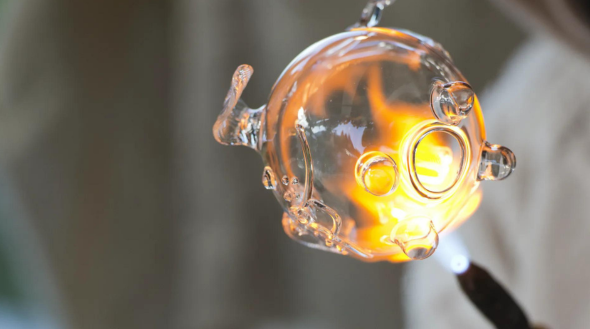- ...
Postgraduate Studentships - Search for funding opportunities.
Postgraduate Studentships - Search for funding opportunities.
MA Design at Arts University Plymouth develops products, practices and applications for contemporary society through a speculative lens to imagine design beyond the status quo of production and consumption. It does this by teaching design as an active mode of research that seeks to positively impact human and planetary well being.
It encourages innovation and solutions-based ideation through study and practices that demonstrate new ideas on usability, supply-chains, models of production, fabrication technologies, life cycle analysis, consumer behaviour and digital-material interfaces.
Through this course your learning will follow a design process based on practice-led research methodologies and project development informed by material investigation, iterative production, co-design, prototyping, visualisation and reflective market analysis. You will be encouraged to consider both small-scale and mass market manufacturing, identifying the ways that your designs may potentially impact communities, the economy and the environment. Your ideas will be refined through peer team working and in collaboration with an external partner or institution whom you identify as influential or necessary to your design ideas and target market.
As a designer, you face a number of urgent challenges beyond the aesthetics and form of your work. This course teaches design strategies, analytical skills and existing material practices to help you reimagine the designer’s role in relation to nature and ecological systems, and the use of new and emerging technologies in the face of some of humanity’s most ‘wicked’ problems. We value design principles based on full life cycle awareness aimed at a more circular production ethos, now integral to an ethical approach to design that furthers human and planetary well being. Through a structured interdisciplinary process of research and design taught through an MA curriculum shared across postgraduate creative subjects, you will expand your critical, contextual and practical knowledge of design, incorporating design thinking and industry leading strategies to prepare you to lead or propose possible design futures.
Because the processes and tools of design are continuously evolving, we know design is no longer simply the creation of better objects and products, but also a matter of designing systems—seeing holistic new ways of exchanging goods, of recycling and repurposing, of re-imagining the kind of world and society we value. New technologies are an important agent of change and can be deployed in design in ways that make what we wear, own, experience and sell more accessible, more economical as well as desirable.Thinking through the discipline of design, you will learn to bridge the gap between the artisanal and contemporary best practices so that regardless of the changes to come, you are prepared to respond and creatively adapt.
The facilities available to you, from our Natural Dye Lab and Biomaterials Lab, to our CAD Lab and immersive media studio, will provide the opportunity to pursue your designs and research through a number of different media and processes, giving you the resources and studio space to take your ideas from concept to prototype. The curriculum provides a programme of visiting lectures, site visits, trips, critiques and seminars that will enrich your designs and challenge you to resolve a body of work that will enable you to step into the next stages of your life and career.
This MA course is open to any design discipline and for those whose design concepts do not easily fit a single area of practice. Are you a thought leader? Do you have ideas about the nature of regenerative design methodology or how to reimagine traditional design processes for more sustainable futures? Then this course is for you.
Through the course you will have access to a wide range of state-of-the-art facilities and resources to develop your work, including our FabLab, which was the first of its kind in the UK and now part of a network of over 2,700 Fab Labs around the world.
We are committed to developing ethical, sustainable design practices as outlined in our Strategic Vision and this ethos is embedded in all MA courses.
MA applicants are normally expected to have an undergraduate degree at 2:2 or above. However, the strength of your creative practice and other forms of experience will be taken into account at the interview stage and we encourage you to start a conversation with us.
See our website for fees

Creative Education For A Changing World Arts University Plymouth is the UKs newest specialist Arts University. Our vision is for a new kind of art...
Sign up to Postgraduate Studentships
Sign up to compare masters
Thanks for making your selection. Click below to view your comparisons.